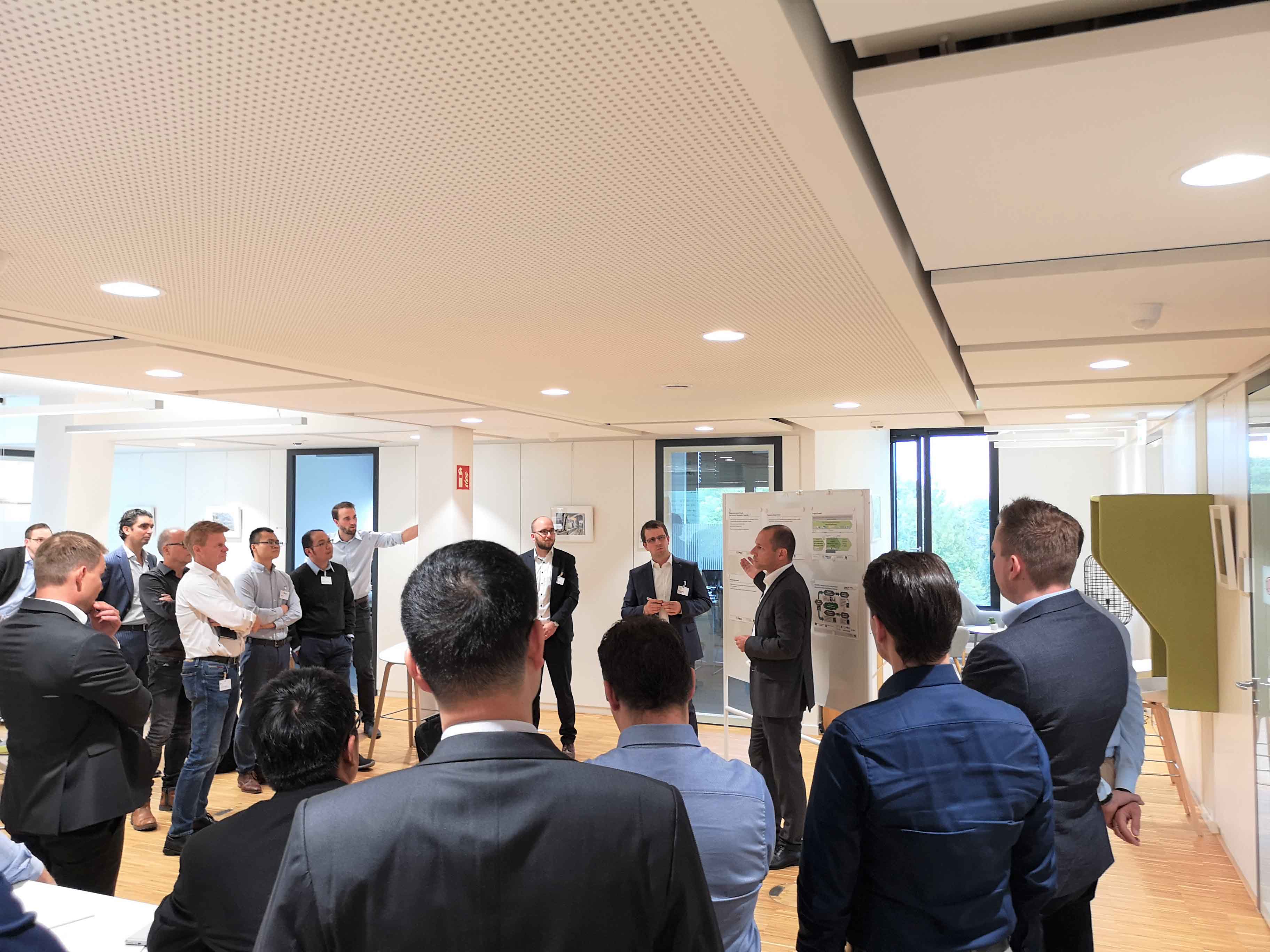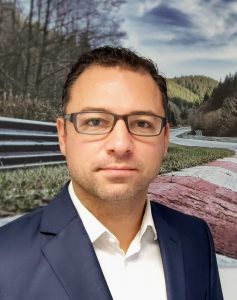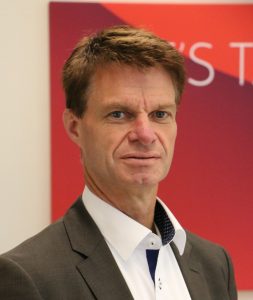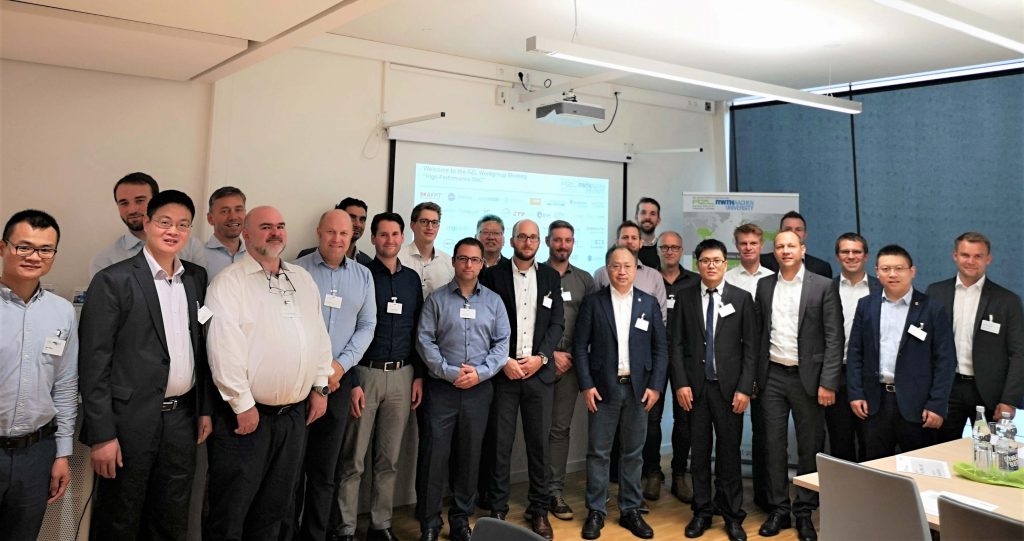
In the AZL Workgroup “High-Performance SMC”, a project was developed in cooperation with M-Base, the IKV and the AZL partner network for the efficient and standardized provision of engineering data for SMC. Within the scope of the project, companies can participate in the definition of the re-quired characteristic material data, the guidelines for the production of test specimens and the test specifications.
Sheet Moulding Compounds (SMC) are used in various application areas such as vehicles, electronics, con-struction and infrastructure.
Driven by the requirements to reduce the production costs of lightweight components, a new generation of SMC components with high mechanical properties is of highest relevance. SMC offers enormous potential to realize structural components with good lightweight characteristics at significantly reduced costs compared to conventional continuous fiber-reinforced components.
In order to further establish SMC in broad industrial applications companies participating within the AZL Workgroup recognized the value of a data bank for data harmonization of SMC to provide the possibility of easily finding the right material with its characteristics for the needed specific requirements.
 “The segment of SMC is with 250,000 tons production per year the largest composites market in Europe. I am very pleased that we start now with the project of data harmoni-zation along the complete value chain. The goal is to have a similar data base as already established by Campus® for thermoplastics and thermoplastic composites. Only with a reliable set data we can convince the engineering experts to use SMC in a larger variety of applications,” says Dr. Michael Effing, Chairman of the Board of AVK and Composites Germany.
“The segment of SMC is with 250,000 tons production per year the largest composites market in Europe. I am very pleased that we start now with the project of data harmoni-zation along the complete value chain. The goal is to have a similar data base as already established by Campus® for thermoplastics and thermoplastic composites. Only with a reliable set data we can convince the engineering experts to use SMC in a larger variety of applications,” says Dr. Michael Effing, Chairman of the Board of AVK and Composites Germany.
As of right now a databank for engineered thermoplastic materials (by Campus®) al-ready exists and is offering an immense value.
Under the lead of M-Base, Dr. CEO Erwin Baur who has successfully established the CAMPUS database, the AZL, IKV and companies along the value chain of long fibre reinforced SMC initiated to build a CAMPUS-compatible data structure and material characterization methodology during the High-Performance SMC Workgroup Meetings.

The right material for the specific application is indispensable to have the ability to pro-duce with the highest standards, as Dr. Timo Huber from Hengrui Corporation assesses, “Our company Hengrui Corp. HRC is a global supplier of composite lightweight solutions to serve various markets like the automotive industry, which is our main sector, followed by transportation, aerospace and construction. In all sectors we are offering our services along the entire value chain, starting with engineering & part design, through R&D in terms of processing technologies and materials, to find the right combination for each application, and finally the production of composite components. In this approach it is essential to have access to a material data base with comprehensive and reliable material characteristic values. Especially regarding SMC with its randomly distributed and partially inhomogeneous fiber orientation and content, a SMC data base is necessary to exploit the full lightweight and performance potential of the material.”

As time, costs and effectivity are generally the most significant topics in production and the striven improvement of these factors is at all times present, the industry has already seen the need of development and new steps in the SMC field as Daniel Bröder from Polynt mentions: “The desire for more efficient development in terms of time, cost, more effective problem discussion and generally lower risk can only be met if component im-plementation can be simulated accordingly with the respective material.
With this aspect in mind and with the aim of highlighting the many advantageous material properties of fiber-reinforced thermosets and making them easily accessible to a wider mass of people, it is a necessary existential step for the industry”.
Siemens also recognizes the possibilities offered by a database for SMC materials, which not only simplifies the existing selection process, but also promises to enable further applications, as Michael Kiesel notes: “At Siemens we are already using SMC for the interior of high speed and commuter trains and with the use of the next generation of High-Performance SMC we believe we can even find additional semi-structural appli-cations and further reduce the weight and have more flexibility in the overall design of our new interior parts.”
The AZL in cooperation with the IKV and its expertise in the field of simulation, processing and characteriza-tion of SMC, will develop a testing program to characterize the SMC materials within a Joint Partner Project with partners from industry.

The project which will include testings on one of AOC Aliancy’s newly designed SMC test tools is also an important step in the SMC market from Aliancy’s point of view as Andreas Horbach explains:” The project initiated by the AZL, to determine from technical product data on commercially available SMC formulations, is an important action for the current but also for a potential future SMC market. With this data, SMC will be better comparable with other engineering plastics and advantages of SMC can be better illustrated.
This project will enable a push for the material SMC as soon as the technical data are read into the material database managed by M-Base. In order to make this project sus-tainable, it is necessary to obtain a large number of SMC manufacturers with different SMC formulations, with the aim of developing extensive material data for the above-mentioned database. This will enable SMC to become more important and to gain access to other markets.”
The project will define the appropriate material properties of commercially available SMC materials that can be used by stakeholders involved in the material selection. Furthermore, appropriate material parameters that enable a detailed material selection within the framework of the preliminary design are investigated. The process-dependent material parameters for the design of process and structure will also be discussed in the course of the project.

Participants of the last High-Performance SMC Workgroup Meeting in which AZL and IKV presented the project proposal
Additionally, the project addresses how the characteristic values can be used for process and structure sim-ulation and which tests and production parameters provide significant, appropriate process-dependent ma-terial parameters at manageable costs.
During the soon-to-be started project, test specimens will be produced from three first representative materi-als selected by the consortium and the suitability of the proposed test procedure for the different materials will be assessed. The project will include the testing of the process-relevant and mechanical properties as well as the feasibility of the proposed test methods for the different materials.
Participating companies will have the possibility to co-define the project with their needs, requirements and requests for optimum value and will be able to work together with experts from the AZL’s and IKV’s research network to develop a solution for the subject.
The project will kick-off on May 19th 2020 with a duration of 6 months and is open to join.
We kindly invite you to participate in this valuable project. Please contact us for questions and more infor-mation on how to join the project:
Philipp Fröhlig, Senior Project Manager at AZL Aachen GmbH E-mail:philipp.froehlig@azl-aachen-gmbh.de
About AZL:
RWTH Aachen University is one of the worldwide leading universities in the field of production technology. The Aachen Center for integrative Lightweight Production (AZL) of RWTH Aachen consolidates the light-weight expertise of eight partner institutes with 750 scientists on the RWTH Campus. Furthermore, in coop-eration with the AZL Aachen GmbH, the AZL institute has built up an international partner network between these institutes and more than 80 international companies form 21 different countries involved in lightweight production. For this, AZL consists of two separate entities: The AZL of RWTH Aachen University addresses the transformation of lightweight design in mass production with basic research and development of light-weight products, materials, production processes and systems with access to the latest full-scale machines and automation systems. As a service provider partnering with companies in the field of lightweight production technology, AZL Aachen GmbH provides industrial services in the areas of engineering, consultancy and project management, networking and business development. With the AZL Partnership, the AZL Aachen GmbH enables the close cooperation between the lightweight industry and the research institutes of RWTH Aachen Campus along the whole value chain. The AZL Partner Network consists of more than 80 industrial partners representing the entire lightweight production value chain from the raw material producer, over mold-ers, manufacturing equipment suppliers, Tier 1 and Tier 2 to OEMs, from SMEs to large multinational corpo-rations, from Germany to Mexico, China or Japan, from 21 different countries in total.